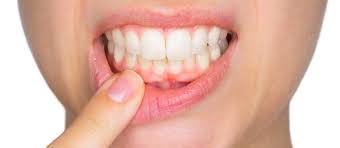Many people who have teeth grinding remain unaware of it until additional health problems arise. Teeth grinding, also known as Bruxism is the grinding, clenching, or gnashing of the teeth, whether awake or sleeping. Those who grind their teeth while sleeping usually don’t know that they do.
Bruxism is a problem because teeth grinding causes tooth enamel to wear down. Your teeth should only come into contact when you’re chewing or swallowing. When tooth enamel wears down, the inner part of your tooth becomes exposed. Additional dental problems can occur because these delicate parts of your tooth are no longer protected by the enamel.
Some common symptoms of Teeth Grinding include:
· Jaw pain
· Sore facial muscles
· Waking up with a headache
· Tight jaw muscles
· Trouble opening your mouth wide
· Broken dental fillings
· Damage to the teeth
If you’re worried that you might have Bruxism, you can ask a dentist to check. To determine whether or not you suffer from teeth grinding, your dentist will ask you a series of questions, check your teeth, and examine the jaw. You may be asked to see the dentist a few more times in order to track changes to your teeth. Possible causes of Teeth Grinding include:
· Stress
· Anxiety
· Anger
· Sleep problems
· Poor tooth alignment
· Bad diet
· Dehydration
· Drug use
· Problems with dental work
· Anti-depressant side effect
What can you do if you have a teeth grinding problem? Treatments largely consist of relaxation and awareness techniques. Establish a bedtime routine that helps you wind down from the day to increase the chances of having a good night’s sleep. If you go to bed without relieving the stress of the day, you are likely to grind and clench your teeth while sleeping. Preventative splints can also be made which protect you’re teeth and unload the joint.
Bruxism gone unnoticed could transform into a more painful condition like TMJ disorder. Therefore, it’s a good idea to see a dentist if you suspect you might grind or clench your teeth during sleep. Catching Bruxism early on will prevent further damage and other dental problems that can be very painful.
Contact us to schedule an appointment to find out whether or not you have Bruxism.
